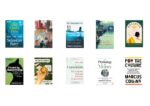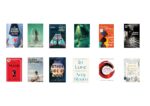No books, please – we’re Kenyan! The debate continues
Two weeks ago I wondered why Kenyans don’t read books, and the comments have come in thick and fast (you can follow the best of them on www.sunwords.com). This is clearly a subject that perplexes many people. So let us spend some more time examining the issue again.
A number of readers pointed out that poverty is NOT the cause. Kenyans spend a billion dollars every year giving revenue to just two companies: East African Breweries and Safaricom. That is not essential spending. Kenyans buzz like bees around a honeycomb whenever an initial public offering (IPO) of shares is announced. In virtually every such offering, large amounts of money have to be sent back to eager shareholders. We now have hundreds of investment clubs in the country – but precious few book clubs.
There is money in Kenya – but it’s not being channelled into books. People find more fulfilment in reading and sending hundreds of utterly trivial and utterly dispensable text messages than they do in buying a good book and absorbing its contents. Kenyans see shares as a worthwhile investment – but do not see the same benefit in making an investment in knowledge.
Why not, though? One reader puts the blame squarely at the feet of parents. Show me a child who loves reading, he says, and I’ll show you parents who love reading. This rings true. Our key role models as children are undoubtedly our parents. If they demonstrate great joy in reading and have plenty of books lying around the house, the kids will follow suit. If parents dismiss reading as ‘ngumu’, the children are also going to take the easy route of being entertained by the TV set.
Another line of argument blames national role models: politicians, business leaders, community elders, even religious leaders. When was the last time you heard a great speech in Kenya that quoted a great book or a great writer? In other countries politicians are keen to impress the notion that they are readers of great works (whether truthfully or not). Until quite recently, our national worthies didn’t write books. Slowly, a culture of writing candid memoirs is emerging, and adding greatly to the national knowledge pool about our own history.
We can all imagine our ‘big people’ holding goat-eating sessions; it’s hard to picture many of them carrying a book around.
Some readers smell conspiracy in all of this. Knowledge is power, after all, and it must suit the political classes very well to keep the people ignorant. Certainly a well-read electorate would not queue up obediently at polling stations to ‘vote tribe’ every five years. An informed mass of voters would see through the nonsensical, illogical arguments put to them by their overlords. A discerning populace would vote with discernment. ‘Keep ’em stupid’ – and therefore far away from books – would appear to be a winning political strategy thus far.
Arguably, our own publishers cannot walk away unscathed from all this. We have an archaic publishing industry: one that focuses almost exclusively on textbooks; one that takes few chances; one that produces poorly produced books at high prices. A reading culture is in the interest of these business-people: but when was the last time you saw an innovative marketing event around a book?
I attended a media breakfast recently to discuss the issue of reading in Kenya. As expected, it was poorly attended (although the quality of the few enthusiasts who showed up more than made up for the lack of quantity). Guess where everyone was? Well, the famous Hummer vehicle was being launched at a nearby hotel that same morning. That event caused traffic jams all around, as it was the place to be.
So we would all much rather appear at a glitzy event to launch a gas-guzzling vehicle that most of us will never own. A few good books, on the other hand, have the power to transform lives and livelihoods – but they remain on the shelves, unloved and unread. One reader entertainingly observed that most Nairobians spend as many as three hours every day commuting while staring into space. If only they would stare at a book instead, that would be such a productive use of their time…
Most people seem to stare at books and see paper instead of ideas. Yet those ideas hold genuine power to improve lives. Hear it from the greats: “You don’t have to burn books to destroy a culture. Just get people to stop reading them”, said Mahatma Gandhi. Lincoln and Jefferson placed great importance in books; so does Nelson Mandela.
Ask Henry Ward Beecher what a book is, and you will get the answer: “A garden; an orchard; a storehouse; a party; a multitude of counsellors”. What on earth is literacy for? Mark Twain told us: “The man who does not read good books has no advantage over the man who cannot read them.”
No one should read because someone else tells them to. Everyone should read because it is what makes being human worthwhile.

Buy Sunny Bindra's new book
The X in CX
here »
Popular Posts
- Where are you rushing to—your funeral?June 29, 2025
- How to spot a real thinkerJune 15, 2025
- The pause that saves usJune 8, 2025
- Built the app, forgot the flowJune 22, 2025
- The map will appear—once you start walking.July 6, 2025















